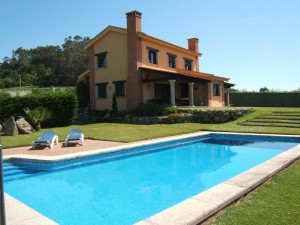
Property experts have been reassuring holiday homeowners in Spain that there’s no need to fear plans to introduce holiday rental licences in the country just yet.
The Spanish government’s proposals to licence the rental of holiday homes have caused confusion, with many holiday homeowners voicing concerns that the new laws could act as a deterrent for people thinking of renting out their property to a tourist as they normally would.
The proposals have caused some cash-strapped expats to feel uneasy, with concerns especially among those homeowners who only rent out their properties at peak times of the year.
The proposals would include a tax on holiday rental income and would mean any homeowner wanting to rent out their property to a tourist would have to hold a valid permit to do so – or face fines.
However, expats shouldn’t view the move as a tax on foreigners; its purpose would be more to get an idea of the numbers of people who rent their holiday homes to tourists, rather than trying to prevent homeowners from doing so.
After all, it could potentially have a negative effect on Spain’s tourism industry, so why would the government want to risk that? Tourism is, after all, one of the country’s key revenue generators and indeed Spain has one of the biggest tourism industries in the world.
Despite that, it’s believed that the proposals would net millions of euros for the ailing Spanish treasury and leading figures from within the Spanish property industry have said the move would lead to the creation of a nationwide register of holiday rentals.
It would be this register that holiday homeowners wishing to rent their properties on short-term leases to tourists would have to be on, and in order to get on it they would have to apply to their council.
In the Canary Islands, Balearic Islands and in Catalonia, the pressure from hotel owners wishing to maximise their profits have already resulted in having strict rules for renting out properties to tourists.
And this is most likely where the confusion comes from, as the current law on renting is not explained clearly enough.
Presently, letting out properties to tourists on a short-term lease is strictly regulated in the aforementioned regions, with the law stating that if you own a semi-detached or detached property, you can rent your property as a touristic property, by obtaining a permit, providing services and charging clients VAT.
Touristic, or no-frills?
Or alternatively you can rent out the property on a standard rent, no-frills basis; without a permit and therefore, not providing any kind of services and without charging clients VAT.
If you own an apartment, the leasehold cannot be a touristic one because it’s simply impossible to get a permit to rent out apartments to tourists. However, it is your property and you can rent it out to whoever you please, providing you don’t offer or provide any kind of services (a non-touristic rental, if you like).
Properties which are advertised as holiday homes where services are offered must then be careful how they actually advertise themselves, as they may tip the balance from being a “non-touristic” rental to a touristic one.
And it is a serious issue, as some reports suggest that landlords in regions where these rules are already in place have been fined up to €30,000 for renting out their holiday homes without a correct licence.
The essential element for holiday homeowners is to make sure that their adverts are in sync with their contracts: if you don’t have a licence to rent out your holiday home as a touristic rental (offering services, charging VAT), then don’t rent it out that way. However, by all means rent it without offering services and without charging VAT as this would not be classed as a touristic rental.
This looks a lot more positive than much of what I have read but can someone tell me what ‘offering services’ actually means?
If you just let your house out for holidays when does it become ‘offering services’?
Just put a bar of soap on the bathroom sink and you have offered a service.